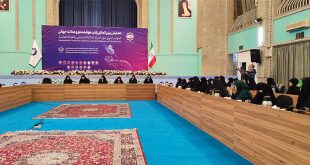In this paper the writer analyzes the discursive practices emerging in the transnational Muslim humanitarian sector, documenting the emergence of a pervasive ethic of non-secular universal humanism therein.
Global refugee and migration flows stemming from recent conflicts in the greater MENA region have become a pressing global priority for governments, NGOs, and civil society networks alike. In this paper I analyze the discursive practices emerging in the transnational Muslim humanitarian sector, documenting the emergence of a pervasive ethic of non-secular universal humanism therein. I argue that the practices of theologically informed universal humanitarianism constitute a type of “living fiqh” that can be developed by Muslim ethicists to help mitigate the challenges of religious sectarianism, ethno-nationalism and political ideology that have been exacerbated by the forced migration crisis. If mapped, debated, and engaged with responsibly, the discourses that emerge in the “living fiqh” of Muslim humanitarianism promise to provide much needed concrete examples of cooperative ethics and practical solutions to pressing problems faced by the victims of forced displacement and their hosts. To do so, I argue that Muslim ethicists should integrate contemporary social sciences with the classical jurisprudential tool of custom (ʿUrf).
Bibliographic Information
Title: The Living Fiqh, or Practical Theology, of Muslim Humanitarianism
Author: Abbas Barzegar
Published in: Migration and Islamic Ethics, Volume 2, November 2019
Language: English
Length: 16 pages
 The Living Fiqh, or Practical Theology, of Muslim Humanitarianism
The Living Fiqh, or Practical Theology, of Muslim Humanitarianism
 Ijtihad Network Being Wise and Faithful Muslim in the Contemporary World
Ijtihad Network Being Wise and Faithful Muslim in the Contemporary World
